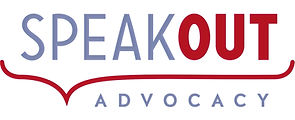Fee for Service - Accessible Information & User Testing
User testing means checking if something works well for the people who will use it.
We ask real people to try something – like easy read information, a website, form, app, or service – and tell us what they think.
This helps us:
-
Find out what is easy to use
-
Find out what is hard to understand
-
Make things better for everyone
Why is it important?
Because everyone should be able to use things easily – especially people with disability.
Example:
If we are making an easy read document, we will ask our team with lived experience to look at the document and tell us:
-
What do they like?
-
What is confusing?
-
What can we fix?
Speak Out employees a team of user testers with lived experience of intellectual disability, who are paid standard award wages.
Easy Read & Plain English Translation
Easy Read is a way of writing that helps people with intellectual disability understand information.
Easy Read uses:
-
simple words
-
short sentences
-
pictures to help explain the words
-
lots of space on the page
Easy Read helps people understand their rights, services, and choices.
Plain English is clear and simple writing.
Plain English:
-
uses everyday words
-
avoids long or hard-to-understand words
-
helps more people understand important information
It does not use pictures, but it is easier to read than most documents.
Speak Out with the assistance of our user testers can translate documents to Easy Read or Plain English formats.
Easy Read animations are short videos that help explain things.
They use:
-
simple words
-
clear voices
-
pictures or cartoons that move
-
sometimes text on screen
Easy Read animations help people with intellectual disability understand:
-
their rights
-
how to use services
-
how to stay safe
-
other important information
Animations are a fun and easy way to learn.
Speak Out with the assistance of our user testers, voice over artists and content creators can create animations that help explain difficult things.
A podcast is like a radio show you can listen to anytime.
You can listen to a podcast:
-
on your phone, tablet, or computer
-
at home or on the go
-
with headphones or a speaker
Podcasts can be about lots of things, like:
-
news
-
stories
-
interviews
-
music
-
learning new things
You can pause, rewind, or listen again whenever you like.
Speak Out has experience in creating Podcasts with people that have lived experience of intellectual disability.
